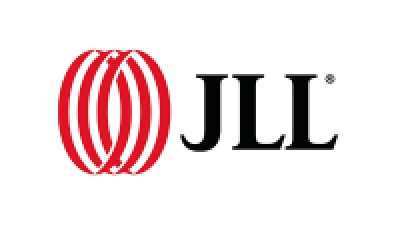Space As A Service: What Property Managers Can Learn From The Hospitality Industry

Megan Matthews doesn’t need to see a single suite to judge the quality of an office building. Everything she needs to know she can get just from sitting in the lobby.
“I judge an office’s lobby just like I would a hotel’s,” said Matthews, Mid-Atlantic managing director at JLL. “What kind of amenities are there signs for? Do the staff know their building inside and out? And most importantly, how comfortable and cared-for do the tenants seem?”
To provide a tenant-first approach, property managers are taking a cue from the hospitality industry. Americans spend a third of their lives at work, and that share has been growing steadily since the 1970s. It is no wonder that employees want their workplaces to resemble hotels, which offer an experience that caters to their needs, as well as activities outside of work. According to Matthews, the demand for space has become a demand for “space as a service,” an amenities- and experience-rich approach to workplaces. A focus on tenant experience can help property managers retain tenants and attract new ones through superior client services.
Trends in the hospitality industry have long been informing the office and retail sectors. But JLL’s 2017 Global Research Project revealed that workplace experience is a primary differentiator whenever individuals engage with an organization and drives how they feel about their place of work. Matthews said the rise of coworking over the last five years has led to a shift in how property managers think about space.
“Coworking spaces started offering a seamless experience from the moment a tenant walked in the door,” Matthews said. “That included cafés, breakout and lounge spaces, fitness centers and of course, workspaces. And when you enter a hotel or a coworking space, you see consistent branding in terms of design and amenities, even scents, that remind you of where you are."
Office buildings are now catching on: Property managers looking to attract new tenants are learning the same lessons.
“Property management has grown tremendously over the past decade,” Matthews said. “As tenants look toward a more concierge-style experience, serving clients and their exceeding expectations is paramount. Property managers need to create an environment for the human experience to thrive.”
Hospitality considerations are quickly becoming mainstream. At its 2018 International Annual Conference, the Building Owners and Managers Association held sessions on topics like “Tenant Retention and Brand Recognition Through Scent” and “The Wealth Inside Wellness: Attract and Retain the Tenants You Want.”
Ten years ago, signature smells and wellness initiatives like yoga classes were the sole purview of hospitality providers, Matthews said. These sort of experiential initiatives would have been unheard of in commercial real estate. But as the workplace continues to adapt to the demands of a more experience-seeking generation, property managers will follow suit.
“Just like the hospitality industry, at the core of property management is to maintain the integrity of the building and deliver excellent client service,” Matthews said. “The only difference is that we repeatedly interact with our customers each and every day, making delivering a truly positive experience in our assets even more vital.”
These lessons from hospitality are applicable beyond the office market. JLL recently appointed Matthews managing director of the Mid-Atlantic region, placing her in charge of 41.5M SF of commercial and industrial space. Matthews wants to implement the lessons that she gleaned from the hospitality industry in every part of the space she represents.
“You have to be agile in today’s environment,” Matthews said. “No matter the kind of space, property managers need to uphold their clients’ brand reputation and deliver exceptional client service to each and every person who walks through the asset’s doors.”
This feature was produced in collaboration between Bisnow Branded Content and JLL Mid-Atlantic. Bisnow news staff was not involved in the production of this content.

